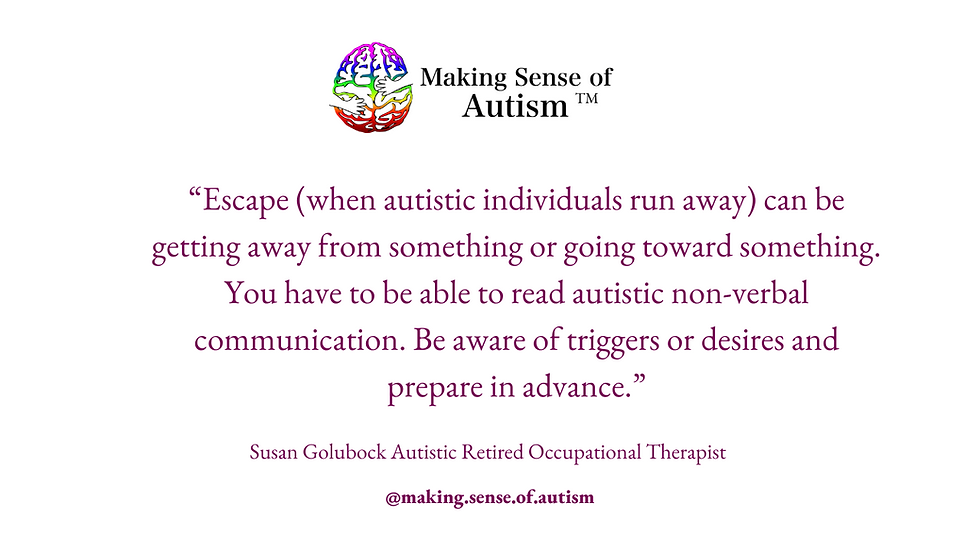Understanding Elopement in Autistic Children: Exploring the Why and How
- Staci Neustadt
- Aug 14, 2024
- 1 min read
Elopement, or the sudden act of running away, is a behavior that many parents and therapists with autistic children face. It's not just about fleeing from something unpleasant—sometimes, it’s about moving towards something intriguing.
Understanding the motivation behind elopement is key. Sometimes, it’s about escaping something uncomfortable, like a loud noise or an unpleasant smell. Other times, it’s about moving towards something exciting, like a playground or an adventure. The challenge for parents and therapists is to read the non-verbal cues that indicate whether a child is running away from something or towards something.
To support children who exhibit elopement behavior, it’s essential to
Anticipate potential triggers in their environment
Be prepared with a sensory kit, including items like earplugs, sunglasses, or calming scents
Know the child's signals or non-verbal communication they express when they have a strong desire to get something or to get away from something.
Finally, trust plays a significant role. If a child trusts that their needs will be met, they’re less likely to feel the need to run. Building this trust requires consistently responding to their needs and creating a predictable, supportive environment.
Listen more to Susan share her perspective on this topic HERE







Comments